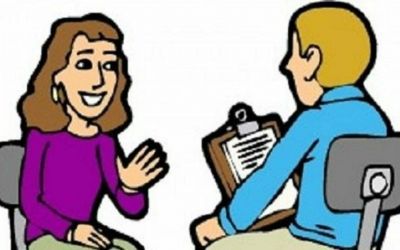
Is Your Scratch Louder Than Your Speech
Love him or hate him, Bill Clinton is famous for his people skills; it seems as if everyone has a story of how he exudes charisma. According to Leil Lowndes, in her book How to Talk to Anyone, great communicators like the 42nd President of the United States have a few simple strategies that work.
The warm smile
No one likes that big cheesy grin making you look like the Joker from Batman. It’s insincere and—let’s be honest—kind of creepy. “Don’t flash an immediate smile when you greet someone,” says Lowndes. The key is to lock eyes, pause, then smile. It has been said that eyes are the windows to the soul, so make the connection then smile warmly. The human connection speaks volumes: we are saying with our eyes that we acknowledge you, that we think you’re important.
Eyes for you
Several years ago, a friend had the opportunity to meet President Clinton while visiting Australia. He said that he was amazed that in a crowd of hundreds, when they had spoken for a few minutes, he felt as though he were the most important person in the world (my friend was not a world leader but a Sydney University academic). Lowndes advises that even after you’ve finished speaking, don’t break eye contact. “When you must look away, do it ever so slowly, reluctantly, stretching the Gooey Toffee until the tiny string finally breaks.”
Full frontal communication
It has been said that a picture is worth a thousand words. In short, we communicate consciously and subconsciously much of what we are thinking through how people see us. People are very aware of how you react to them. When you meet someone, move your body towards them and give them the same undivided attention you would give someone you have admired for years. Lowndes says, “Pivoting 100% toward the new person shouts, ‘I think you are very, very special.’
Forget the fidgeting
My wonderful wife reminds me every day that I shouldn’t rub my bald head. Body language experts say such an action is typical of doubt and uncertainty. Even though I believe I’m neither doubtful nor uncertain, my body language is, however, communicating a different story. We want people to listen to what we are saying, so try to keep your hands away from your head. If you want to appear credible, try not to move too much when your conversation really matters.
In our over-connected society we are all guilty of taking our smart phones into a meeting and checking our email. It is important to be involved, especially for leaders, since our subordinates will copy 100% of our bad habits and 70% of our good habits. “Do not fidget, twitch, wiggle, squirm, or scratch,” Lowndes says. Frequent hand motions near your face can give your listener the feeling that you may be hiding something or are anxious. Instead, hold your hands in your lap and keep eye contact on the person who is listening. Leaders must be very cognizant of this when junior members are speaking. If the leader is not listening why should they? Don’t let your team think, “I cannot hear what you say because your body language tells a different story!”
You may also enjoy
The Eyes Have It – The Value of Mejikara
The time is now for Medical Affairs
Morunda www.morunda.com should be your choice of recruiting partner in Japan and Asia Pacific. Why? Because we live and breathe the pharmaceutical industry in Asia and the Pacific—we’re specialists!
- Morunda has completed over 400 managers to director-level placements since 2001.
- A cultural understanding of what it takes to secure top talent
Over one hundred thought leadership articles published. - We hold regular seminars for candidates and clients alike with industry experts.
- We understand the market, not only today, but where it is heading in the next 12 to 18 months


